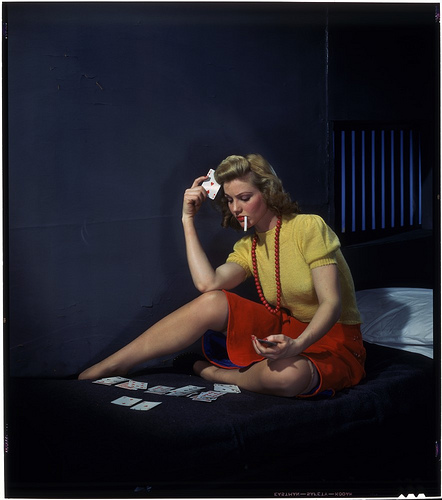you’re single and lonely…you just don’t know it yet
 Take a good hard look at your lives, single twentysomethings. The independence you’re enjoying is a ruse. At least that’s what Margaret Wente thinks.
Take a good hard look at your lives, single twentysomethings. The independence you’re enjoying is a ruse. At least that’s what Margaret Wente thinks.
‘At 36, being me was not so thrilling anymore,’ she writes. ‘Eventually it dawned on me that unless I took drastic action, I faced a future as a cat lady. That’s the difference a decade makes.’
In her column for the Globe and Mail last month, Wente reflects on the notion that one’s carefree single 20s are an opportunity for soul-searching and growth. This, she writes, is a defence mechanism; a cruel lie perpetuated by HBO.
According to Wente, companionship (namely marriage) is when we really become responsible, contented adults. The joy that comes from sitting home alone with the music up as loud as possible, cooking what you want, watching what you want, coming and going as you please: this is nothing compared to going through life with a partner by your side.
‘Self-love is not, in fact, the greatest love of all. And the road to self-actualization isn’t through perfection of the independent self, but through imperfect, messy, long-term relationships.’
In the lead up to Valentine’s Day, more of these stories will follow (it’s already begun). Not only the defences of marriage and singlehood, but also the assertion of many that one is inherently better than the other.
Evolutionists and Greek philosophers have argued for centuries that our purpose in life is to pair off. The former argues that we are driven to spread our seed and preserve the species, while Aristophanes says we’re just one half of a superhuman, roaming the world until we’re complete.
Naturally, when examining the state of single life today, journalists and social scientists zero in on those in their 20s. The decade carries with it heavy expectations and always has. For generations, the idea was that after collage one was an adult and adulthood included marriage…immediately.
But now, turning 20 signals at least five years of extended adolescence and another five just trying to nail down a job with a decent health care plan.
The New York Times published an article on 11 January asking if recent years signalled ‘The End of Courtship?’
‘If the purpose of the first date was to learn about someone’s background, education, politics and cultural tastes, Google and Facebook have taken care of that,’ writes Alex Williams.
Wente and Williams are right in that dating has changed with the progression of technology and the romanticism of youth. But their fears of an entire cohort of single and lonely people with no concept of how to form romantic relationships are premature.
The rules may not be the same as they were 20 or 30 years ago, but Generation Y is managing to date, fall in love, break up, get engaged and married like every generation that came before it – sometimes it just plays out in front of 200 or so Facebook friends or blog readers.
Wente’s assertion that twentysomethings are wasting their time convincing themselves they’re happy dating with minimal commitment relies on the assumption that finding a partner (if that’s the goal) must happen within a certain timeframe to be worthwhile. So what if serious dating doesn’t happen until long after your 30s? We should be so lucky as to find the kind of love and compassion that Eve and Sam Pell found in their 70s and 80s, respectively.
It’s a gendered argument, of course. The fear of turning 30 and not moving toward marriage is directed mostly at women, and the scrutiny only turns toward men much, much later and not nearly to the same degree. This “deadline” exists because biology tells us that men can have children at any time in their life, while women can’t, but, like marriage, parenthood is being put off or dumped from the life-plan at increasing numbers.
Behind this debate is another problem: why are we so uncomfortable with people who enjoy being alone? This isn’t only in a romantic context. In a world that is obsessed with instant availability, the person who disappears on a Saturday night to watch movies in their Snuggie is socially defective. Never mind that they’re probably fielding phone calls, emails, texts while they try to enjoy a break from face-to-face social interaction.
In a hyper-connected world in which we have surrounded ourselves with people at all times, it’s not so ridiculous to think that it’s possible to find satisfaction and fulfilment outside of a romantic relationship.

